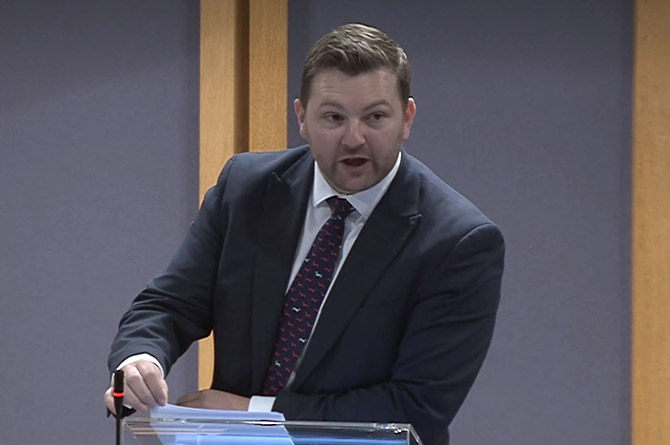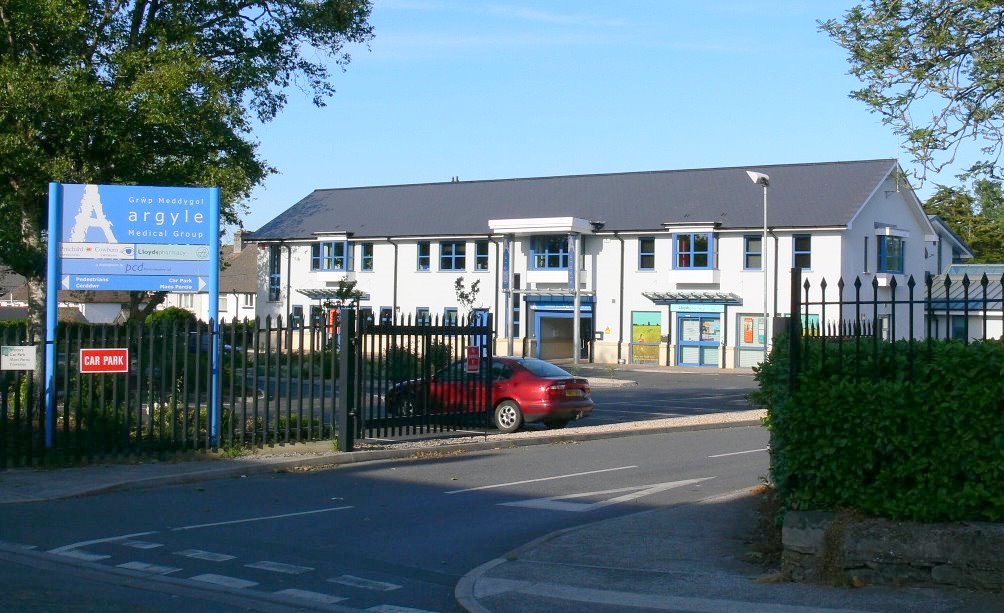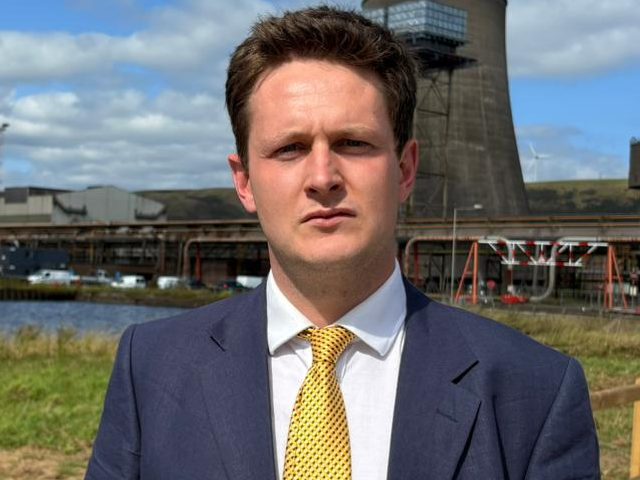Politics
Brexit: not the least surprised

IF it was a tiger that went in the tank, as enthusiastically advocated by Prime Minister Johnson, it was a paper tiger. And all that does is clog up the filters and prevent the engine running. Furthermore, cleaning out the debris is a difficult and expensive job.
But that’s always the same with Johnson. He bounces onto the stage, utters some singularly inappropriate phrases, prattles incoherently for a while and then buggers off to let everyone else – anyone else – sort out the details that he can’t be bothered with (which is all of them).
And so it has come to pass that those “future relationship” talks, even with the “tiger in their tank”, have got absolutely nowhere and have broken up early over “serious” disagreements, with Michel Barnier complaining of “lack of respect and engagement by the UK”.
“Our goal was to get negotiations successfully and quickly on a trajectory to reach an agreement”, Barnier said in a statement. “However, after four days of discussions, serious divergences remain”.
That, of course, comes as absolutely no surprise. If there is any surprise to be had, it’s that the talks lasted as long as four days. There have never been any indications that Johnson has been serious about these talks, so the likelihood was always that they were going to break up in disarray.
NO NEW PROPOSALS FROM UK
Barnier says that Brussels had “listened carefully” to Johnson when he did his “thing” about tigers, and made vacuous noises about wanting a “political agreement” over the summer. And now that the talks have broken down, the recriminations flow, to the point where not much sense can be made of them.
We learn from Barnier, for instance, that the EU has recognised British “red lines”. These include the role of the ECJ, the refusal to be bound by EU law, and a fisheries agreement that recognises the UK’s sovereignty. It has thus hinted at several concessions, across the board.
This is matched by a complaint that the EU’s willingness to be flexible on its initial demands in light of the British positions had not been met with similar understanding from Downing Street over Brussels’ red lines. Downing Street needed to “reciprocate with new proposals”, the EU says.
David Frost, on the other hand, seems to be in the market for extruded verbal material, saying virtually nothing at some length. His big thing is that the British side still wants “an early understanding of the principles underlying an agreement”, which he hopes can be secured by the end of July.
SHIFTING THE BLAME
Oddly enough, the normally astute Denis Staunton for the Irish Times seems to think that the abrupt end to these talks was “not only surprising but perplexing”.
Perplexing it may be – nothing to do with Johnson is ever straightforward – but surprising it never was. The writing has been on the wall so long it is starting to fade.
Staunton, however, takes some comfort from “the language on both sides”. He says it was “restrained” and Frost’s had none of the belligerence that often characterises his rhetoric towards Brussels.
The fact that Barnier chose not to give a press conference, he says, was seen by some as another happy augury but Staunton says it wasn’t. Simply, he was deferring to Angela Merkel and Ursula von der Leyen, who gave a joint press conference later.
However, Barnier is also said to have accused British trade negotiators of “a lack of respect” and when von der Leyen and the German Chancellor got going, Merkel warned the EU Member States that they needed to be prepared for a no-deal TransEnd.
Why the tone of the two parties should thus give rise to such optimism isn’t immediately apparent. At this stage, with little to be gained either way – with only a very limited trade deal on the stocks, one of the greater concerns must be to establish a firm base for blame avoidance.
Barnier, in particular, will want to tell his domestic audience that the EU has gone the extra mile, not least because it then clears the way for the EU to do what it always does – screw the Brits.
A WEAK, UNLOVELY THING
Team Johnson, from the look of it, is away with the fairies anyway. And with Frost apparently trotting off to a new job at the end of the month (or not), he has good reasons for not starting a spat that he can’t finish.
But what makes this more than a little bit redundant – and so utterly tedious – is that we’re almost down to the level of two bald men fighting over a comb. Any deal done – if there is one done – must be measured not by what it includes but what is left out. So very little can be agreed in the time that anything delivered will be a weak, unlovely thing.
But the real giveaway is that the UK has yet to set out plans for how it wants an agreement to work, on areas as diverse its own state aid regime, to a fully functioning fishing policy.
Throughout the entire Brexit period the UK stance has been to let the EU make the running, and then knock down what it offers. There is only so much of that one can take before even the most patient of negotiators begins to feel they are being taken for mugs.
JOHNSON GOING THROUGH THE MOTIONS
Yet, on fishing, in particular, Barnier is saying that there needs to be a “sustainable and long-term solution” on fisheries, taking into account the needs of European fishermen for certainty over their livelihoods. An effective all-encompassing dispute settlement mechanism is also necessary, to ensure both sides stick to their obligations.
Here, the issue is – as it is elsewhere – that the British government doesn’t have the first idea of how to manage a modern fishery. The Ministry of Agriculture, Fisheries and Food (MAFF) has given way to Defra, which doesn’t even have “fisheries” in its title. Any expertise there was in the department has long gone.
Something about which we haven’t been hearing much of late is also of importance – governance. A little while back, this was of some importance, with the EU wanting a single, over-arching agreement, with standard rules and institutions, and a common dispute procedure.
Now we don’t seem to hear so much of this, but that doesn’t mean it is no longer important. Most likely, Barnier has given up on trying to get any sense out of Team Johnson and is just going through the motions.
THE EU CAN WAIT
The thing for sure here is that he doesn’t need to throw his toys out of the pram. All he has to do is wait until after December 31, and watch the Brits having hissy-fits when they discover what being outside the internal market really means.
In time – and perhaps when there is a different administration – Barnier (or his successor) can come back and we can all start talking again. Then perhaps the UK will have people who are prepared to behave like adults and look anew at what sort of relationship we need with our closest neighbours.
Until then, we are going to see a lot of this sort of ritual dance. It may die down during the holiday period and pick up the tempo as the autumn turns to winter. And there may be a last flurry of activity in the dying days of December, although that will be for show. Any agreement has to be ratified, so a last-minute deal is not on the cards.
Meanwhile, there will be more talks next week. These will be in London, another session of face-to-face meetings. I don’t expect we’ll get much more out of them than we did this week. If we do, then that really will be a surprise.
This article is reproduced by kind permission of Dr Richard North from his blog http://eureferendum.com/.
Dr Richard North is a veteran supported of Britain’s exit from the EU and co-author, with Christopher Booker, of ‘The Great Deception: The Definitive History of the EU’ and before that co-author of two other books on EU-related matters.
He was group research director of the EDD group in the European Parliament and has written numerous pamphlets and articles on EU matters.
News
Kurtz criticises Tufnell over GP pressures at Argyle Medical Centre

Local MS says Welsh Government decisions are root cause of crisis
CONSERVATIVE Senedd Member Sam Kurtz has criticised Labour MP Henry Tufnell after the MP suggested GP practice management should be held accountable for patient dissatisfaction at Pembroke Dock’s Argyle Medical Centre.
Patients registered at the surgery have for years raised concerns about access to appointments, particularly difficulties securing same-day consultations and long waits to get through on the phone.

Speaking to BBC Wales, Mr Tufnell said he had discussed the situation with the Health Board’s Chief Executive and claimed the senior official “feels powerless” to intervene.
He said: “I’ve spoken to the Chief Executive of the Health Board, and he feels powerless to do anything about it. We need to come together and hold the management of these surgeries to account; there must be transparency about what they’re doing, and, fundamentally, we need reform in the system.”

Mr Kurtz responded angrily, arguing that responsibility for reforming NHS Wales rests with the Welsh Government, not GP surgeries or frontline staff.
He said: “I don’t think it’s very helpful to point the finger at the surgery and suggest the fault lies with them when staff are working incredibly hard.
“If he wants to point the finger, it should be at his Labour colleagues in Cardiff Bay, who have continuously piled pressure onto GP practices by imposing contracts that are extremely difficult to deliver. That is why surgeries like Argyle are under such strain.”
Mr Kurtz later told The Pembrokeshire Herald that the problems faced by GP practices across Pembrokeshire were the result of long-term policy failures rather than poor local management.
“As someone born and raised in Pembrokeshire, I have seen first-hand the damage caused by the Welsh Labour Government’s mismanagement of our local NHS, despite the dedication and professionalism of frontline staff who continue to do their very best in increasingly challenging conditions,” he said.
“Anyone seeking to place the blame on NHS staff should back off. The fault does not lie with them. Real improvement will only come through properly supporting GP practices, listening to their concerns and working with them rather than against them.”
Argyle Medical Group is the second-largest GP practice in Wales, serving around 25,000 registered patients with nine GPs — an average of approximately 2,800 patients per doctor. In 2021, the practice had the equivalent of 10.75 full-time GPs and was actively seeking to recruit more.
However, ongoing recruitment difficulties forced Argyle to withdraw from its contract at St Clement’s Surgery in Neyland and reduce hours at St Oswald’s Surgery in Pembroke. Following the Neyland closure, patients were transferred to the Neyland and Johnston Medical Practice, which later handed back its GP contract after retirements and further recruitment problems. Those patients are now treated by salaried and locum GPs employed by the Health Board.
Similar pressures are being felt across Pembrokeshire, from Tenby in the south-east to St Davids in the north-west. While Wales does not face “GP deserts” on the same scale as the well-documented shortage of NHS dentists, reduced access to general practice has contributed to more patients attending hospital for conditions once routinely dealt with by GPs. This has placed additional strain on hospital services and staff.
In 2018, the Welsh Government pledged to recruit 1,000 additional GPs into NHS Wales. While overall GP headcount has risen, the number of full-time GPs has continued to fall. Many newer recruits work part-time, as locums, or on limited contracts, meaning fewer doctors are available in practice on a day-to-day basis.
Newly qualified GPs have also tended to favour larger urban centres, particularly along the M4 corridor and in north-east Wales, where professional support and career opportunities are greater. Critics argue that Welsh Government recruitment and retention strategies have failed to address persistent shortages in rural and coastal communities.
There are also ongoing shortfalls in independent prescribing pharmacists and community nursing staff, limiting efforts to relieve pressure on GP surgeries.
Mr Kurtz said: “The foundation of NHS care — with GPs as the first point of contact — has buckled. Blaming GP staff is a distraction. The issues are structural, long-term and political, and ultimately the buck stops in Cardiff Bay.”
Health
NHS Wales spends more than £15.5m on agency radiographers as pressures grow

NHS WALES has spent more than £15.5 million on agency radiography staff over the past five years, as mounting pressure on diagnostic imaging services raises concerns about long-term workforce sustainability.
Figures obtained by the Welsh Liberal Democrats through Freedom of Information requests show that spending on temporary radiographers almost doubled between 2020/21 and 2023/24, despite relatively low headline vacancy rates across Welsh health boards.
Radiographers carry out X-rays, CT, MRI and ultrasound scans, which are essential to emergency care, cancer diagnosis, trauma treatment and elective surgery. Delays or shortages in imaging services can have a knock-on effect across patient pathways, slowing diagnosis and treatment.
The data also highlights an ageing workforce. More than a quarter of radiographers in Wales are aged over 50, with more than one in ten aged 55 or above. In some health boards, a significantly higher proportion of staff are approaching retirement age, raising concerns that experienced radiographers could leave faster than they can be replaced.
Betsi Cadwaladr University Health Board recorded the highest agency spend, at more than £8.1m over the period covered by the FOI requests. Other health boards also reported growing reliance on temporary staff to maintain services, particularly where specialist skills are required.
While official vacancy figures remain comparatively low, professional bodies have previously warned that vacancy data does not always reflect pressure on services, as posts can be held open or covered through overtime and agency staff rather than filled permanently.
Diagnostic imaging demand has increased steadily in recent years, driven by an ageing population, advances in medical imaging technology, and rising referrals linked to cancer and long-term conditions.
Commenting on the findings, Welsh Liberal Democrat Leader Jane Dodds MS said:
“Radiographers are absolutely vital to the NHS. From diagnosing cancer to treating people in A&E, the vast majority of patient journeys depend on timely access to scans.
“These figures show a system increasingly relying on expensive agency staff while failing to plan properly for the future workforce. That is not fair on patients, and it is not fair on staff who are already under huge pressure.
“The Welsh Labour Government must take urgent action to improve recruitment and retention, support experienced staff to stay in the workforce for longer, and ensure NHS Wales has a sustainable radiography workforce fit for the future.”
The Welsh Government has previously said it is working with health boards to improve recruitment and retention across NHS Wales, including expanding training places and supporting flexible working arrangements to help retain experienced staff. Ministers have also pointed to record numbers of staff working in the NHS overall, while acknowledging ongoing challenges in hard-to-recruit specialties.
However, opposition parties and professional bodies continue to warn that without long-term workforce planning, reliance on agency staff could increase further, adding to costs and pressure on already stretched diagnostic services.
Politics
Ajax armoured vehicle trial paused again as MP warns jobs must be protected

A FRESH pause to trials of the Ajax armoured vehicle programme has prompted renewed calls for workers’ jobs in Wales to be safeguarded.
The trial has been halted after another soldier reportedly fell ill during testing, adding to a series of delays and technical problems that have dogged the long-running Ministry of Defence project.
Welsh Liberal Democrat Westminster spokesperson David Chadwick MP said the repeated failures raised serious questions about accountability and cost.
He warned ministers must ensure taxpayers are not left footing the bill if the programme ultimately collapses, arguing that responsibility should rest with defence contractor General Dynamics.
“With the Ajax programme beset by repeated failures and significant delays, ministers need to confirm that taxpayers will not be left to bear the cost of these failures,” he said.
“If the project does end up being scrapped, the Government must ensure that the 400 workers currently employed on the programme in Merthyr Tydfil will receive full support.”
Mr Chadwick added that the Merthyr site should be prioritised for future defence and military development work if Ajax does not proceed, to protect skilled jobs and investment in the area.
The Ajax programme has faced years of scrutiny over safety concerns, excessive noise and vibration, and mounting delays, with the latest pause reigniting pressure on the Government to clarify the project’s future.
-

 Crime1 day ago
Crime1 day agoMilford Haven man jailed after drunken attack on partner and police officers
-

 News4 days ago
News4 days agoDyfed-Powys Police launch major investigation after triple fatal crash
-

 Crime1 day ago
Crime1 day agoTeenager charged following rape allegation at Saundersfoot nightclub
-

 Crime2 days ago
Crime2 days agoMan charged with months of coercive control and assaults
-

 Crime3 days ago
Crime3 days agoMan sent to Crown Court over historic indecent assault allegations
-

 Crime5 days ago
Crime5 days agoMan spared jail after baseball bat incident in Milford Haven
-

 Crime3 days ago
Crime3 days agoMilford Haven man admits multiple offences after A477 incident
-

 Crime2 days ago
Crime2 days agoWoman ‘terrified in own home’ after ex breaches court order






















